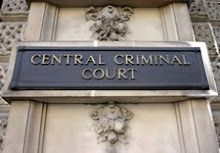Shameful affair that exposed a secret world
Arms to Iraq: Compensation at last for a brave businessman who risked his life for Britain and was left to carry the can when the going got tough.
Friday, 9 November 2001
INDEPENDENT online
Exactly nine years ago today, on 9 November 1992, the trial collapsed at the Old Bailey of three businessmen charged with breaking embargoes on the export of arms to Iraq.
The defendants, Paul Henderson, Peter Allen and Trevor Abraham from a hitherto obscure machine tool company, Matrix Churchill, walked free after a government minister, Alan Clark, admitted in the witness box that he had given a "nod and a wink" to their trades. So began a political storm that ran and ran.
It all seems such a long time ago, belonging to a bygone age, a different political landscape, populated by characters such as Mr Clark, William Waldegrave, Geoffrey Howe, John Major and of course, Margaret Thatcher. The following day, Mr Major, who was Prime Minister, announced the setting up of the arms to Iraq inquiry, headed by Sir Richard Scott.
Three years later, after receiving evidence from more than 200 witnesses and studying 200,000 pages of written material, Sir Richard published his report. It was a sensation, revealing the workings of Whitehall in a way they had never been disclosed before, exposing the lengths to which ministers and civil servants would go to cover their backs, highlighting the inability of one side of government to communicate with the other, reinforcing the impression gained from the television comedy series Yes Minister that what politicians say in public is often different from what is said in private.
And then, nothing. The politicians, who for a period, seemed touched by scandal, brushed aside the criticism and carried on as if nothing had happened – at least, in the case of the Tory ministers, until the 1997 election defeat. The civil servants, thanks in the main to astute lobbying from their union and senior Whitehall colleagues determined they did not suffer while their ministerial masters walked away unscathed, were able to continue their careers.
Assurances were given that from now on, Customs would talk to the security services and vice versa, that publicly declared sanctions would be obeyed, that foreign policy would not be changed on the hoof in secret without informing Parliament – and promptly forgotten.
For some people, though, the arms to Iraq saga left a permanent wound. Finally, at last, some of them are getting a degree of recompense. Mr Henderson, the boss of Matrix Churchill, had to watch as his company, tainted by scandal, went to the wall. No matter that Mr Henderson argued the Government and MI6 knew what he was doing and actively encouraged him to supply his products – which had a dual, civilian and military use, to Iraq.
Guidelines banning the export of weapons to Iran and Iraq, who fought a bitter eight-year war, had been relaxed in Iraq's favour. Hard to imagine now but, of the pair, Iraq had been regarded by the Foreign Office as a potential friend of sorts. Iran had imposed the fatwa on Salman Rushdie and was seen as more extreme than its rival.
Not for nothing did Mr Henderson's MI6 handler, "John Balsom", refer to him as "a very brave man" in court.
Mr Henderson always claimed he was approached by MI6 to supply it with information about Iraq's weapons programme. At the time, Matrix Churchill was owned by the Iraqis so Mr Henderson was being asked to spy on his bosses and, on his frequent visits to Baghdad, to keep his eyes and ears open. It was a remarkably risky exercise – anyone suspected of spying in Iraq faced death (Farzad Bazoft, a journalist for The Observer, was hanged for espionage in 1990).
Yet, bizarrely, Mr Henderson faced prosecution, not in Iraq, but in Britain, after Customs raided his premises. Matrix Churchill was not alone. It was a mad, frenetic period. Customs had taken upon itself to launch a single-department assault against what it perceived as Iraqi sanctions busting. Shortly before Customs swooped on Mr Henderson's factory in June 1990, officers had seized pipes at Teesport, which they claimed were heading to Iraq for use in a "supergun" project.
Proving other branches of the Government knew what he was doing and even condoned it (not just MI6, the Department of Trade and Industry signed export licences knowing the machine tools were to be used to make fuses for shells) was an uphill task, not helped by the obfuscation of politicians. Four ministers signed public interest immunity certificates to block vital defence evidence from being submitted to the trial. It was a shameful episode and one that was fully deserving of political and media approbation.
But the condemnation had no lasting effect and was forgotten. Mr Henderson was left to pick up the pieces. Only now, is he on the point of receiving any compensation.

No comments:
Post a Comment